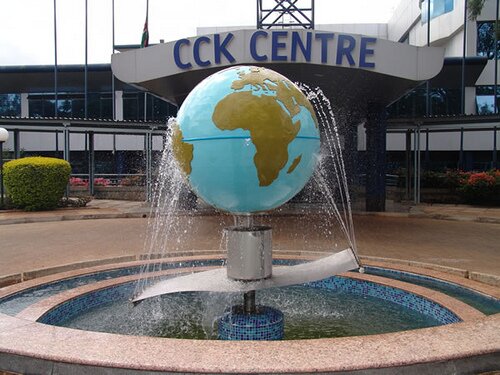
CC image courtesy of CCK Kenya on Flickr
Ever since the Communications Commission of Kenya (CCK) adopted the Quality of Service (QoS) rating in 2008/09, Kenya’s biggest operator Safaricom has failed to meet its minimum requirements.
With Safaricom’s licence up for renewal at the end of June 2014, the CCK and the Ministry of ICT seem to have finally cornered the operator, forcing it to comply and pay KSh2.36 billion (US$27.6 million) to renew the license for the next 10 years.
But can they afford to deny Safaricom the licence? Is Safaricom too big to regulate?
Safaricom has in the past two years sailed through unchartered waters – defying court cases, tax increases and even threats of arrest – to become undoubtedly the biggest and most profitable company in East and Central Africa if its recent financial statements are anything to go by.
During the announcement of its half-year results two months ago, the telecom set a new half-year profitability record for corporate Kenya after it declared a KSh11.2 billion (US$129 million) net income for the six months to September 2013.
By November 2013, Safaricom shareholders had seen the value of their investment in the firm more than double since they bought shares in the primary market five years ago, with the company still pushing on to maximise its profits.
Safaricom pays well over KSh10 billion (US$115 million) in taxes to the government and has been the country’s top taxpayer six years in a row.
The firm also employs over 10,000 people directly or indirectly, with over 60,000 M-Pesa agents all over the country.
With all that at stake, and the government being a major shareholder, the CCK and the ministry’s push seems like a bluff, with the telecom having the ability to scoff at the threats.
On Monday HumanIPO reported Safaricom had taken on the CCK by airing its displeasure at the terms laid down ahead of its licence renewal.
“Our view is that punitive measures will not assist the industry to achieve better QoS (Quality of Service) measures as they will divert resources from operators which could have been applied to improving coverage and network quality,” said Bob Collymore, Safaricom chief executive officer (CEO).
With CCK laws placing fines for non-compliance at KSh500,000 (US$6,000), the ministry and the regulator hope a public outcry to have the telecom comply might instigate its customers to demand for better services and standards bearing in mind the high charges they are subjected to.
Yet Safaricom criticises the CCK’s methodology in how it conducts its quality of service assessment.
In its second Sustainability Report 2013, Safaricom dismissed the CCK’s QoS, saying the regulator’s report greatly contradicts audits by an independent company.
“We are concerned by the latest CCK results (2011/12 FY) as there are several discrepancies between those released by the commission and similar tests carried out by an independent company, based on an international benchmarking methodology, on our behalf,” the company said.
Analysts remain bullish about Safaricom’s prospects going forward and M-Pesa is now a way of life in Kenya, but yet the CCK and the Ministry of ICT are determined to pull them into line. The humble pie is just waiting to be eaten. The big question is who will be eating it.

















